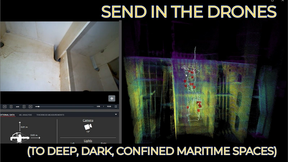Since it started publishing in 1939, Maritime Reporter & Engineering News has recognized excellence in ship construction. This year 18 ships in total were honored, including many “world firsts.”
Milos - Suezmaz crude oil tanker
Milos is the first vessel in a series of two Suezmax Crude Oil Tanker, built by SungDong Shipbuilding & Marine Engineering for Kyklades Maritime Corporation. The vessel is built under the survey of Lloyd’s Register and designed in accordance with IACS Common Structure Rule(CSR). The vessel features a double side skin and has a flush deck, bulbous bow, transom stern, open water type stern frame, semi-balanced rudder and single propeller driven by a slow speed diesel engine. The main engine MCR of Wartsila 6X72 with delta by-pass tuning Tier II is de-rated to 15,088kW at 71.8 rpm for economy fuel oil consumption. The speed of the vessel at design draft (16m) is 14.2 knots at NCR with 15 percent sea margin based on well optimized hull form and propeller design which had been analyzed by CFD (Computational Fluid Dynamics).
Electric power is generated from three diesel generators driven by alternator with 980kW output and steam is generated by two auxiliary boilers of with capacity of 35,000 kg/h and one composite boiler with capacity of 1,200 kg/h (Exh. gas section) and 1,800kg/h (Oil fired section).
The vessel has six pairs of cargo oil tanks, two slop tanks, fore and aft peak tanks, segregated water ballast tanks, fuel oil tanks and fresh water tanks. Cargo tanks are divided by plane type transverse and longitudinal bulkhead. Cargo handling is performed by three cargo oil pump of 4,000 cu. m./hr., driven by steam turbine. Water ballast is handled by two ballast pump, driven by electric motor. The water ballast system is designed to be environmentally friendly by one ballast water treatment which have a capacity of 4,000 cu. m./hr. for main and 300 cu. m./hr. for APT by electrolysis type that service ballast tanks of the vessel.
The vessel is fully considering latest environmental guidelines such as fuel oil protection, Inventory of Hazardous Materials for ship’s recycling, Performance Standard for Protective Coating (PSPC) and IMO Tier II NOx requirement.

